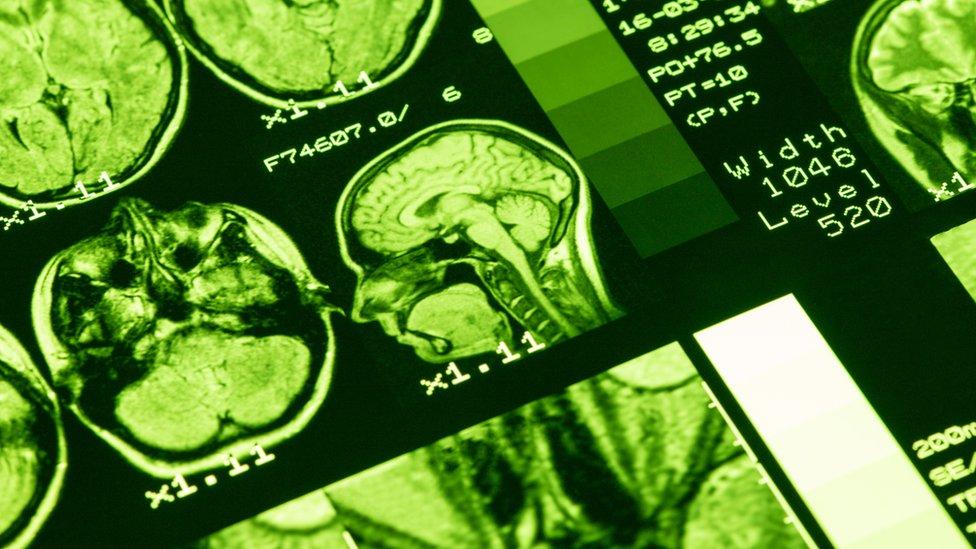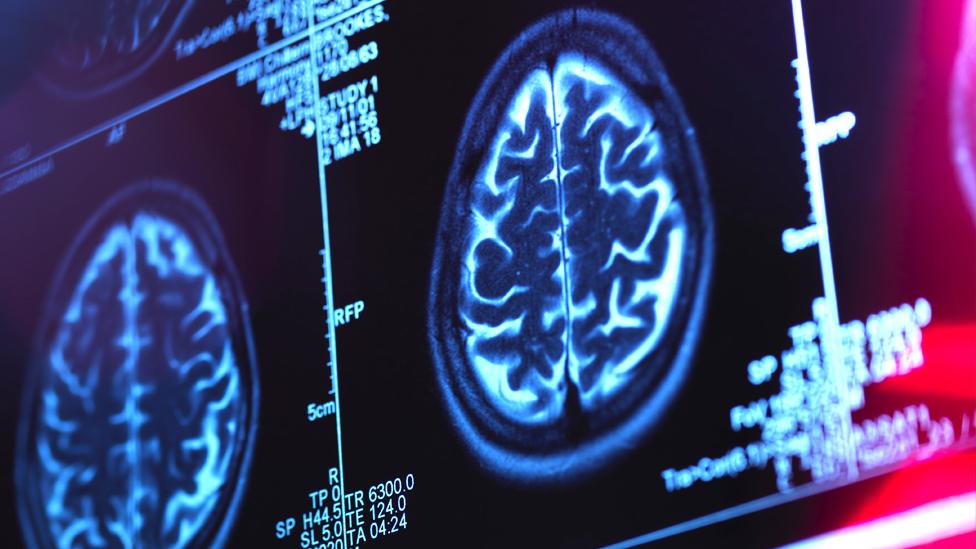Study offers clues to super-agers' brilliant brains
- Published

A select group of people in their 80s and 90s retain exceptional cognitive powers
US scientists believe they may be closer to answering why certain elderly people retain rare cognitive ability comparable to people 30 years younger.
These elite "super-agers" have larger nerve cells in regions of the brain responsible for memory, new research in The Journal of Neuroscience, external shows.
The octogenarians may have been born that way, or their neurons grew more or shrank less with age than in others.
More study is needed, which may help explore new ways to fight dementia.
In particular, researchers want to ascertain how changes in nerve cells might impact long-term brain health. Do they offer some protection in old age or are they simply a reflection of better brain health?
Postmortem examinations
The key aim of the SuperAging Research Program, external at Northwestern University in Illinois - which has been running for more than a decade - is to find out what keeps the brain cognitively sharp and protects people from dementia.
Those taking part must be over 80, have an outstanding memory, be willing to undergo various checks and tests - and agree to donate their brain to medical science after their death.

Based on past work using MRI scans, external, researchers have already concluded that the brains of so-called super-agers look and work more like those of a 50-year-old, rather than an 80-year-old.
The latest research - based on postmortem examinations - focuses on a region of the brain known as the entorhinal cortex, which is involved with memory.
The researchers studied the brains of six super-agers, seven "cognitively average" octogenarians, five people with early-stage Alzheimer's and six younger donors who died from non brain-related disease.
They found the super-agers had bigger, healthier neurons in this brain region than the others.
They also appear to be less prone to accumulating abnormal deposits of protein, known as tangles, typically seen in the brains of patients with Alzheimer's.
Dr Rosa Sancho, from Alzheimer's Research UK, believes projects such as the SuperAging Program might help towards finding and developing new treatments for dementia.
"Further research will need to uncover exactly what causes these super-ager brain cells to be larger and better protected," said Dr Sancho.
"For example, is it a genetic feature super-agers are born with, and if so what features?"
She added: "While researchers work to understand how to stop changes in the brain that cause dementia, there are small steps we can all take to keep our brains healthy as we age."
The exact cause of Alzheimer's disease is not yet fully understood, but a number of things are thought to increase the risk.
While some, such as age and genetics, are unavoidable, lifestyle factors such as abstaining from smoking, eating a healthier diet and exercising, can lower the risk.
Lead researcher at Northwestern, Prof Tamar Gefen, told the BBC that they planned to build a detailed picture of the super-agers to understand more: "We need to study their genetics, lifestyle factors and educational attainment. We also need to capture their history and personal narratives. I have been fortunate to know these inspiring people intimately in both life and in death."
Related topics
- Published28 September 2022
